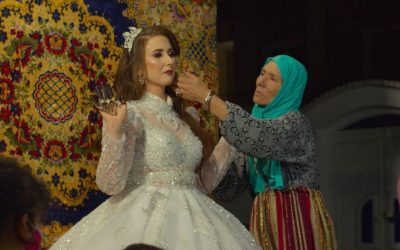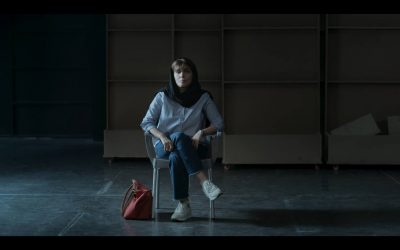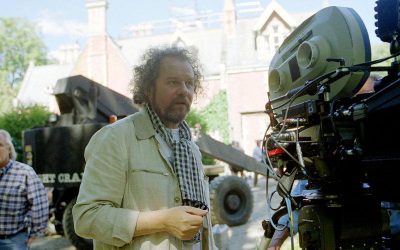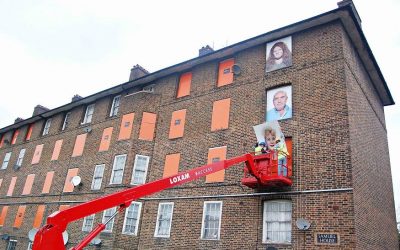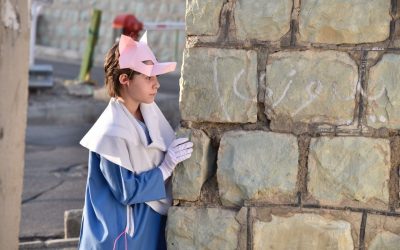Zakaria Jaber is an Award Winning multi-talented film director with a diverse range of skills and experiences that he himself developed and have shaped his career. Zakaria is a photographer and videographer with a commitment to master visual storytelling, editing, and writing. “Anxious in Beirut” is his first documentary where he establishes himself as an accomplished director capable of delivering compelling and impactful visual narratives.
RedCut: You attempt to make sense of Beirut through personal and public stories, exploring the city’s anxiety via intersections of generations, and public/private spaces, capturing its essence. Tell us more about your documentary and why you decided to make this film.
Zakaria: I decided to make this film out of spite. I’ve been aching to watch a film that expresses why our generation was lied to and labeled as the “civil peace generation” and all we lived were just breaks from wars, not real peace. I was searching for a film that summarizes the whole era of financiers, businessmen, and ruling families that strategize and reorganize themselves after the civil war and how this whole scheme led to the downfall of our economy and our social values. I was aching for a film that talks about the intersections of generations. So I was like, I will stop hoping to watch something that is stuck in my head and I’m gonna go ahead and try to do it. The main drive was that all of these stories could be made in the context of my surroundings and that’s how people will relate to it if they see themselves in it.
RedCut: Despite the grim backdrop of economic collapse, the port explosion, soldiers on the streets, COVID-19, and a mass exodus from the country, you manage to capture many playful moments shared with your friends and father. The film adopts a narrative approach that oscillates between the personal and the general, with a voice-over summarizing the core events and emotions of the era. Meanwhile, friends and family each exhibit their unique ways of commenting on and coping with the harsh realities: one friend is a stand-up comedian, another is a student activist, and your father is an ex-communist playwright. Anger is palpable and the atmosphere paralyzing, but there is something powerful in your dedication to continue filming. What are your thoughts on the form of cinema and the political language in your film?
Zakaria: There is no story without politics, especially in documentaries. I hate documentaries that have no opinion. I refuse A-political and centrist ideas, especially when it comes to an art form that I would like to present to the public. I refuse to be neutral in anything, fiction, doc, ads, music videos, every single thing in life is political. You have many political ideas behind “not drinking coffee at starbucks” for instance. Some boycott for humanitarian reasons as the company funds the Israeli army, some boycott because we need to support local businesses, some boycott for imperialistic reasons, some don’t like their coffee. Every single opinion matters or at least it’s good to hear them. And I believe that the intersectionality between politics and cinema is unbeatable as there is such a big space to express your ideas in images and scripts, the forms that attract any human mind. In the end the best way to get your political ideas is through entertainment and for me I found my entertainment tool which is cinema.
RedCut: I believe the film is a raw documentary that conveys numerous socio-political ideas, which resonate deeply with my thoughts about Romania. It underscores the necessity for greater public presence and activism; we need to take to the streets. The film is dominated by the poetic duality of the grave and the airplane: in Beirut, people either flee on an airplane or end up in the grave, resolutely owning their actions until the end.How do you perceive the intricate relationship between the streets, the people, and filmmakers during times of social movements? In what ways can cinema not only capture but also shape the dynamics of public protest and resistance? How does the presence of filmmakers influence the participants and the course of these movements?

Zakaria Jaber
Zakaria: In my case, before making Anxious in Beirut, I never thought I’d impact people in my life. Most people who lived or live in Lebanon, when they watch the film they have the same response to me “Thank you for reminding us that we lived through this”, which means they had forgotten the atrocities and the heavy lives they live and lived throughout these three years, which is an indication that another trauma is being buried without analysis. A lot of people still reach out to me and tell me that they have changed their minds about a lot of things in this country, some people became more hopeful because they somehow found a truth in this film that was away from their minds, some people became more hopeless when they realize that living in this country is a vicious cycle of ugly realities with a twist of “partying”. If a film opens any debate, good or bad, it means it impacted and it hit well. So yes our work as filmmakers is essential because the essence of our love for this form of art is in favor of communication.
RedCut: Today, the handheld cameras of the people in Palestine are telling the truth and exposing the crimes of Israel. Do you think this harrowing historical experience will change the language of cinema? How do you see the responsibility of artists, filmmakers, and cinema in the face of this atrocity?
Zakaria: I think that documentation in any form under a real genocide is essential, as the killer’s first weapon is to cut the coverage in any way. But filmmakers have the responsibility of taking a step back during the genocide, to look at things at a bigger perspective and not follow the “scoop” methods. Filmmakers should document, write and analyze and ask all the time in times like these. We cannot just produce now, as we are responsible for the writing of history, as our images and analyses become a reference. But i believe that one of the main things that is exposing the real image of zionism and fascism is the image itself that comes from the genocide that is conducted by this illegal state. Documentation is important but also taking a step back to look at any bigger picture is also important. Filmmakers shouldn’t just publish for the moment, their films should be treated as mediums that will be used in tens and hundreds of years from now.
Redcut: In the current circumstances where the power of art and cinema is in the hands of the capitalist system, how much sustainability do you think independent cinema and independent thought have?
Zakaria: The narrative is starting to change. At least in my own world. I used to co-write, produce and organize shoots for foreign crews that come to Lebanon to make films and documentaries. In the past I would receive from them the narrative they think fits best with their policies. It took me a while to have the guts to actually tell my foreign employers and producers that their perception is wrong. Nowadays, and after filtering the producers I would actually like to work with, foreign crews and productions come to me and they know that I am the kind of person that will change their narrative if it is wrong or inaccurate. Which is for me a big step in reclaiming the authority of storytelling in our region. I will never leave Lebanon anytime soon for good, as I believe we still have a big space to make our own stories come to life, and if the capitalist big and western producers would like to fund OUR ideas then we will have a deal. The independent cinema scene in Lebanon is at resistance level nowadays.
RedCut: Do you have any new projects? Could you tell us about the story?
Zakaria: I am co-producing and co-writing various documentaries with different local and international talents. Documentaries that take place in Lebanon and the region. I am filming the first season of my first TV show called “freelance kitchen”, a show where I host people I know or have an influence as freelancers who work in different sectors in Lebanon. We cook together their favorite meal and we unfold their stories of the ups and downs of working as a freelancer in their sector. Also I am aiming to publish my first fiction gangster novel titled “The Hounds of Ras Beirut” by the end of 2024.


